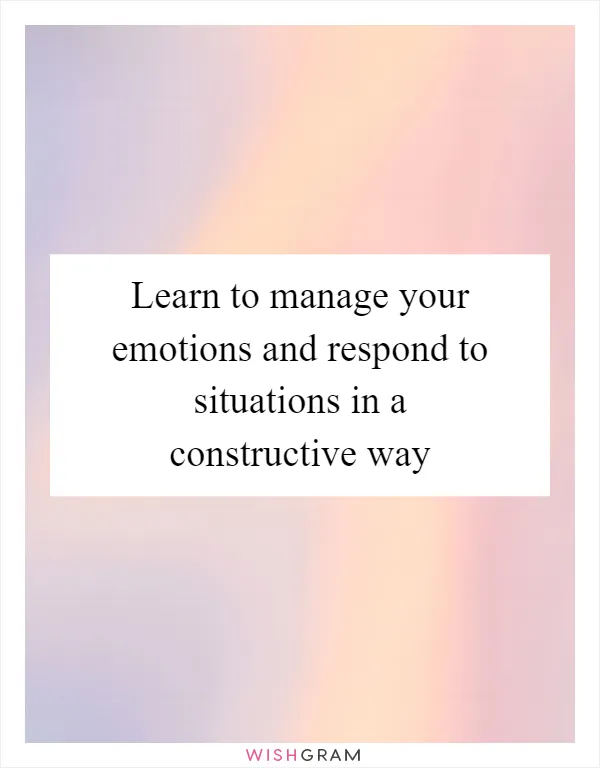Learn to manage your emotions and respond to situations in a constructive way
Learning to manage your emotions and respond to situations in a constructive way is an essential skill that can greatly improve your overall well-being and relationships. It allows you to navigate through life's ups and downs with resilience and grace. By developing this ability, you can effectively handle conflicts, reduce stress, and enhance your emotional intelligence.
One key aspect of managing emotions is self-awareness. Take the time to understand and recognize your own emotions. Pay attention to how you feel in different situations and identify the triggers that may lead to certain emotional responses. This self-awareness will enable you to better understand yourself and make conscious choices about how to respond.
Once you are aware of your emotions, it is important to regulate them. This means finding healthy ways to cope with and express your feelings. Instead of suppressing or ignoring your emotions, try to acknowledge and accept them. Engage in activities that help you relax and unwind, such as exercise, meditation, or spending time in nature. Additionally, expressing your emotions through journaling, talking to a trusted friend, or seeking professional help can be beneficial.
When faced with challenging situations, it is crucial to respond in a constructive manner. This involves reframing your perspective and focusing on finding solutions rather than dwelling on the problem. Take a step back and consider the bigger picture. Ask yourself, "What can I learn from this situation?" or "How can I grow from this experience?" By shifting your mindset, you can approach difficulties with a more positive and proactive attitude.
Effective communication is another vital component of managing emotions. Clearly expressing your thoughts and feelings while actively listening to others can prevent misunderstandings and conflicts. Practice empathy by putting yourself in someone else's shoes and trying to understand their perspective. This will help you respond in a compassionate and respectful way, fostering healthier relationships and resolving conflicts more effectively.
Remember that managing emotions is an ongoing process that requires practice and patience. It is normal to experience setbacks or moments of frustration. Be kind to yourself and allow room for growth. Celebrate your progress, no matter how small, and keep striving to improve.
